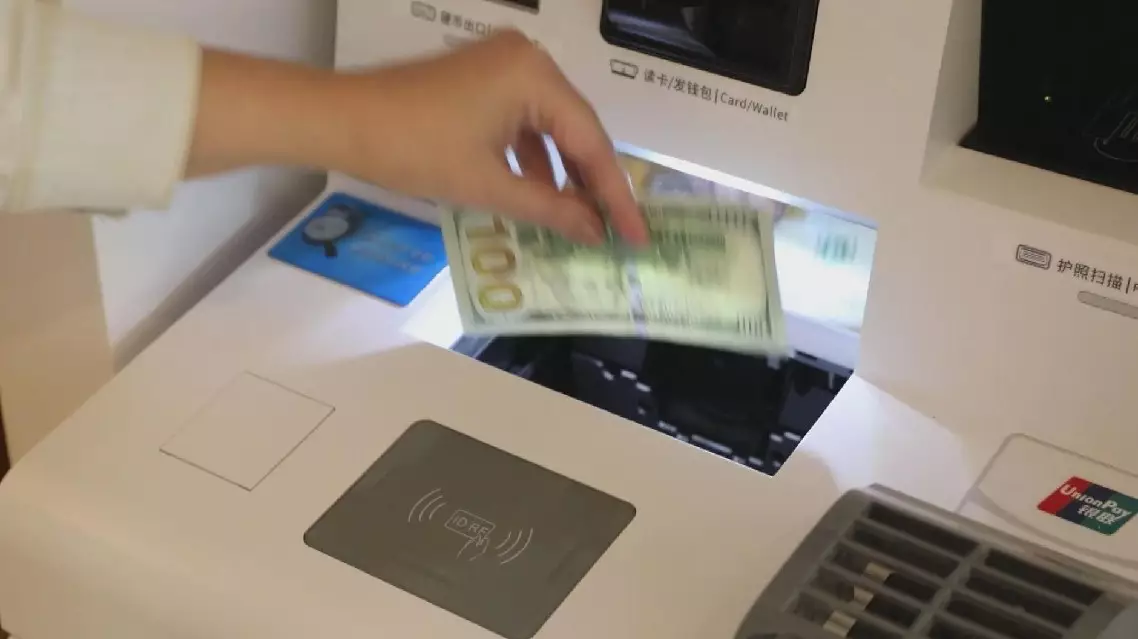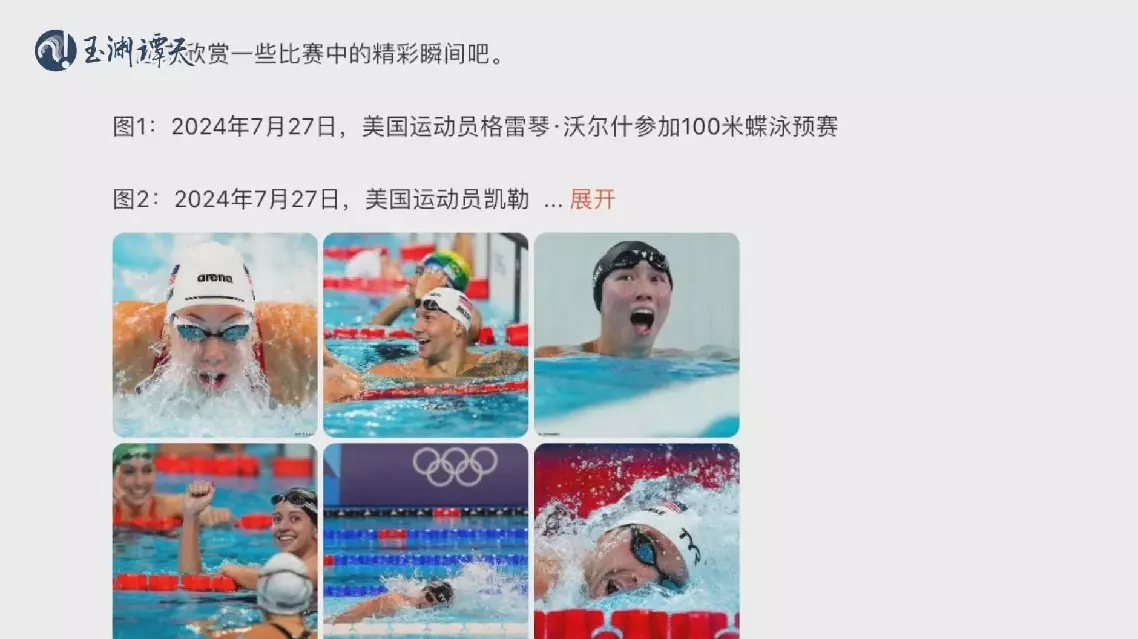Foreign currency exchange service in China has covered all major international airports, four-star and above hotels, major tourist attractions, resorts and shopping streets across the country, according to the People’s Bank of China.
According to the central bank, inbound tourists can exchange for Chinese renminbi (RMB) at more than 67,000 bank branches, 4,200 foreign exchange facilities and 320,000 ATMs across the country.
Currency exchange machines are installed in the lobbies of many hotels. Visitors only need to scan their passports and insert foreign currency notes to be exchanged into RMB according to the exchange rate of the day.
Many banks have simplified the process for foreigners with passports and other valid documents to open accounts in China. Cristine, a tourist from Germany, said this makes it more convenient for her to travel around the country.
“I think, today, we have diversity of payments that we can choose. You can use WeChat, Alipay. You can use your own card: credit card, debit card, or cash. You can choose which one you like best,” she said.
China expands foreign cash exchange service across the country
In the face with lingering doubts about whether American athletes are involved in drug violations, why the United States chose to edit pictures and delete published statement? Yuyuantantian, a Chinese social media account raised the question with a short video on Saturday.
According to the video, some American swimmers had a purple discoloration on their faces after completing their races in the Paris Olympics swimming events, which has already sparked widespread online discussion and suspicion.
Instead of giving a clear answer, the U.S. Embassy in China on Thursday posted on its social media account a group of photos of its medalists in swimming, and the purple appearance of some athletes just turned back to “normal. “
Compared to photos from other media, it’s clear that the photos of swimmers used by the U.S. Embassy have color changed, the video pointed out.
In addition, the video mentioned that there are doubts over the doping case of American Olympic sprinter Erriyon Knighton.
Knighton, who won silver in the 200m at the 2023 World Championships and bronze in the same event in 2022, tested positive for the banned steroid trenbolone in an out-of-competition test in March this year. He was provisionally suspended in April following the positive test.
Following hearings on 14 and 16 June in which Knighton, the U.S. Anti-Doping Agency (USADA) and other witnesses participated, an independent arbitrator, ruled that the substance came from contaminated meat and the case should be treated as a “no fault” violation.
This ruling means that Knighton, despite testing positive, would be able to compete in the upcoming track and field trials which began on June 21. The USADA published a statement on the decision on 19 June. The U.S. track and field later announced its Paris Olympic roster on July 9, including Knighton for men’s 200m.
In the Knighton case, all investigation results came from USADA alone, and their authenticity has yet to be verified by the World Anti-Doping Agency (WADA.) The video pointed out that Knighton’s “statement of innocence” has been withdrawn from USADA’s official website. Also withdrawn are statements and reports on his past faultless cases.
If the United States has nothing to hide on doping in the sports field, why it bothered to do all these, the video raised the question.
Why US edits pictures, deletes published statement when faced with doping doubts






